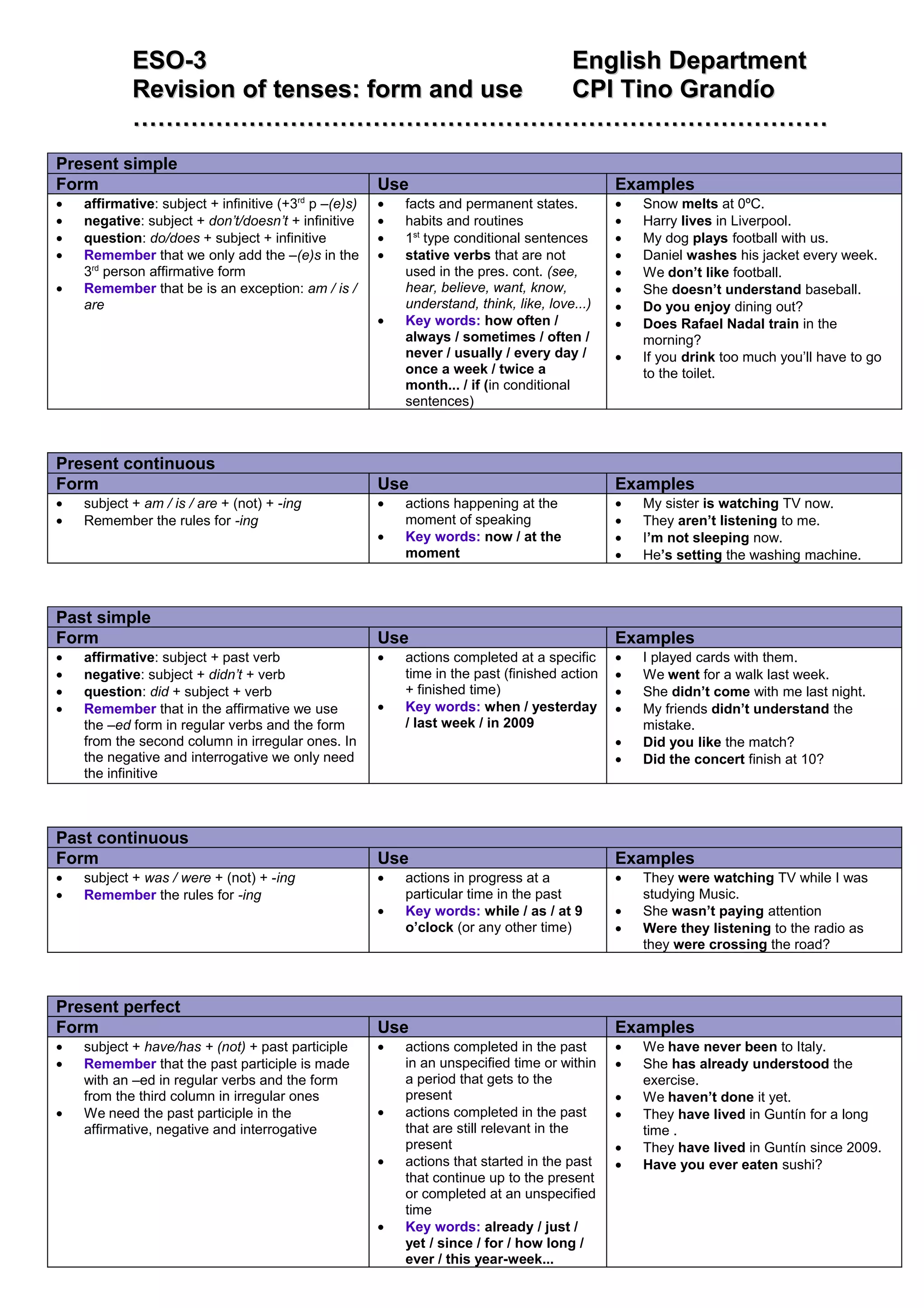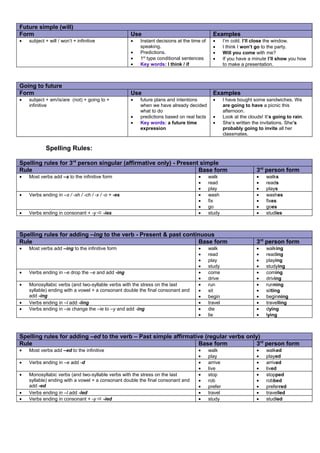This document provides a summary of English verb tenses including:
- Present simple tense - used for facts, habits, and the first conditional
- Present continuous tense - used for actions happening now
- Past simple tense - used for completed past actions
- Past continuous tense - used for ongoing past actions
- Present perfect tense - used for completed actions with relevance to the present
- Future simple (will) - used for predictions and instant decisions
- Going to future - used for plans and intentions
It also outlines spelling rules for adding suffixes to verbs in the third person singular present tense, -ing forms, and regular past tense -ed endings.

